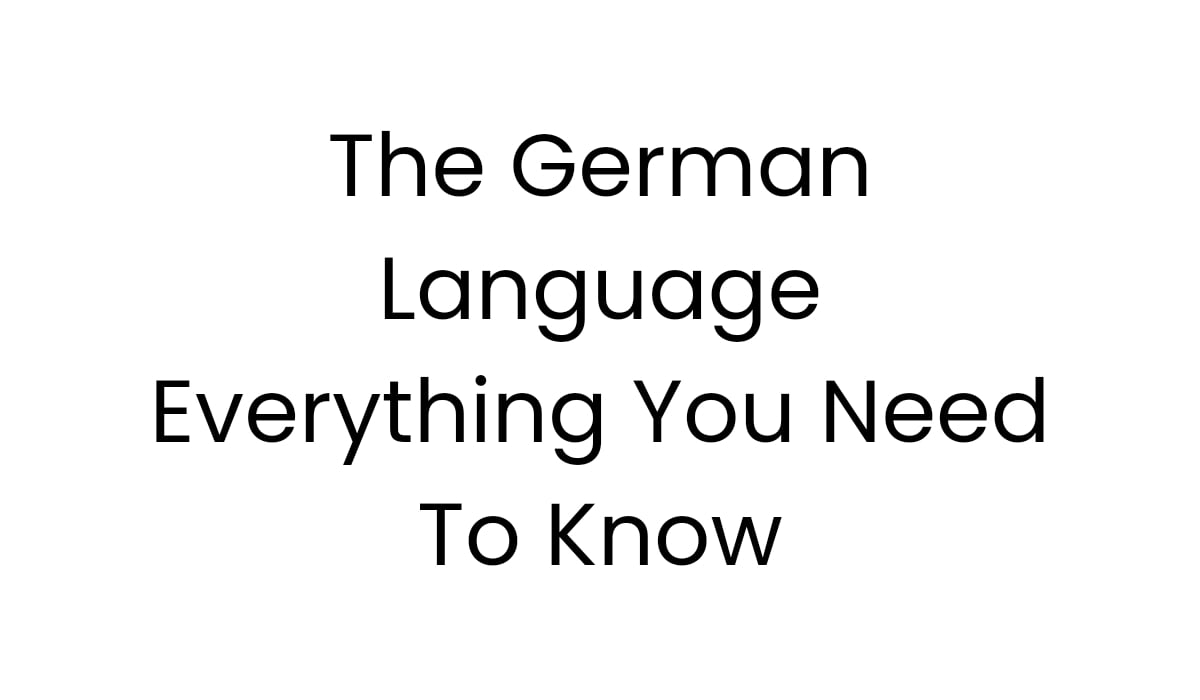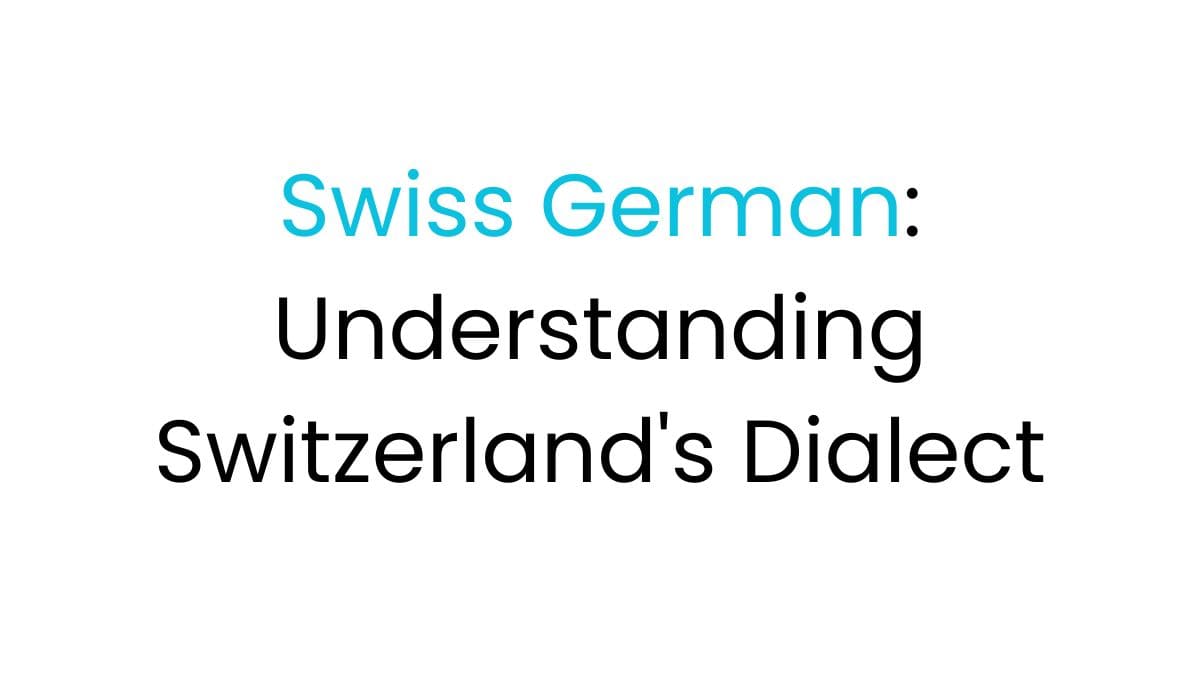Learning to introduce yourself in German can change your travel and cultural experiences. I remember my first German conversation, feeling both excited and nervous. With only 1% of the world speaking German first, learning these skills is very important.
Introducing yourself in German is more than just words. It’s about connecting cultures. When you travel to Germany, Austria, or Switzerland, knowing how to introduce yourself can lead to deeper connections. Most Germans feel more positive towards foreigners who speak their language.
This guide will teach you the basics of German introductions. You’ll learn to handle social situations with confidence and cultural understanding. From simple greetings to more complex communication, you’ll make a great first impression in German-speaking areas.
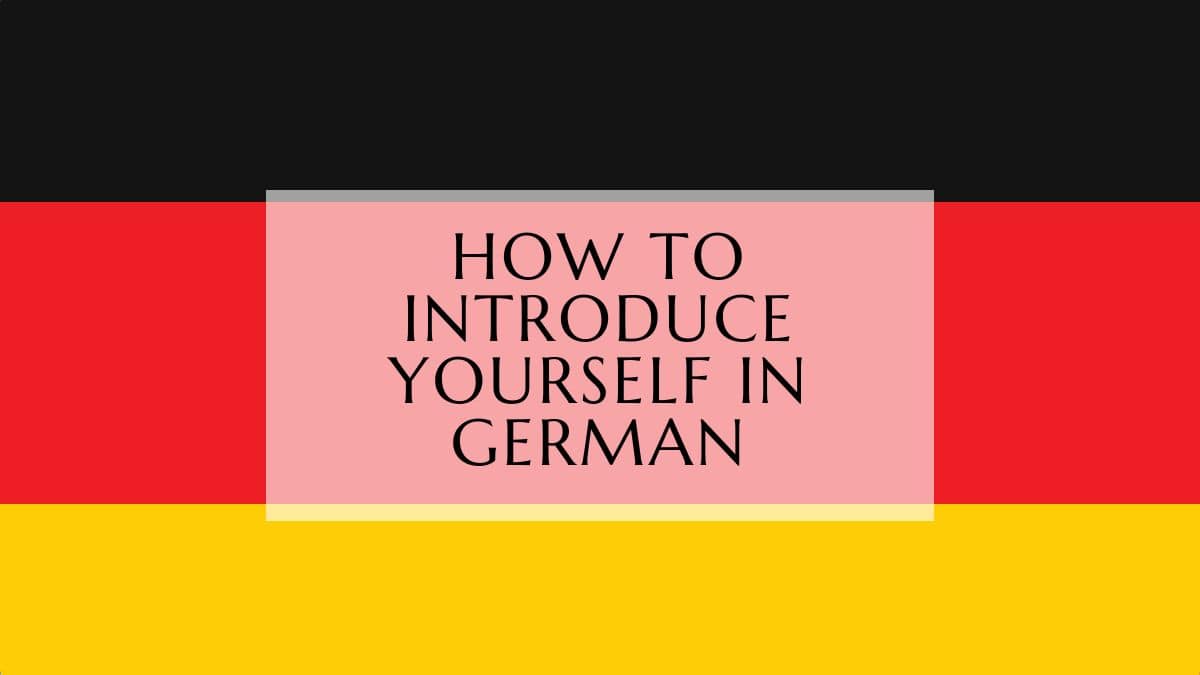
- Key Takeaways
- Formal Greetings
- Informal Greetings
- Time-Specific Greetings
- Saying "My Name Is" in German
- Stating Your Age in German
- Expressing Where You're From
- Making Small Talk
- Expressing Pleasure to Meet Someone
- Ending Conversations Politely
- Family Relations Vocabulary
- Friendship and Social Terms
- Common Hobby Vocabulary
- Popular German Hobbies
- Activity-Related Phrases
- German Number Pronunciation Guide
- Body Language Essentials
- Social Customs to Remember
- Professional Introduction Etiquette
- What's the most important thing to remember when introducing yourself in German?
- How do I say "My name is" in German?
- What are some common German greetings?
- How do I ask someone's name in German?
- What's the proper way to shake hands in German-speaking countries?
- How do I talk about my age in German?
- What should I do if I don't understand something during an introduction?
- How do I introduce my profession in German?
- Are there any cultural taboos I should avoid when introducing myself?
- How can I practice my German introductions?
Key Takeaways
- Learn the importance of formal and informal language contexts
- Understand fundamental German greeting phrases
- Practice pronunciation and cultural nuances
- Build confidence in basic conversational German
- Discover the cultural significance of proper introductions
Essential German Greeting Phrases
Learning to greet someone in German is key for good communication. It’s about knowing the social rules and the right words for each situation.
It’s vital to know the difference between formal and casual greetings. German has many ways to say hello, depending on the time, place, and who you’re talking to.
Formal Greetings
In work or when you don’t know someone well, use formal greetings. These show respect. Here are some important ones:
- Guten Tag (Good day) – The standard formal greeting
- Guten Morgen (Good morning) – Good until late morning
- Guten Abend (Good evening) – Best after 6 PM
Informal Greetings
With friends or people you know, greetings can be more casual. Here are some common ones:
- Hallo (Hello) – A versatile and casual choice
- Servus – Very popular in Bavaria and Austria
- Moin – Common in northern areas
Time-Specific Greetings
The right greeting changes with the time and setting. Different regions in Germany have their own greetings, making them more than just a simple hello.
“Greetings are the first step in building connections in any language.”
Knowing these differences helps make interactions meaningful. It also shows respect for German culture and communication.
Basic German Introduction Phrases
Learning to introduce yourself in German is key. You need to know a few important phrases to start conversations confidently. It’s about knowing how to introduce yourself formally and informally.
- Ich heiße… (My name is…)
- Ich bin… (I am…)
Now, let’s look at these phrases with examples:
| Phrase | English Translation | Example Usage |
|---|---|---|
| Ich heiße Sarah | My name is Sarah | Informal greeting with friends |
| Ich bin Michael | I am Michael | Professional or structured introduction |
Knowing when to use formal or informal language is important. It depends on the situation you’re in.
- In casual settings with peers, use informal phrases
- In professional or formal environments, opt for more structured introductions
- Always match your language to the social context
Practice these phrases to feel more confident in German. Remember, how you say it and the situation matter a lot for a good first impression!
How To Introduce Yourself In German
Learning to introduce yourself in German can lead to new friendships and cultural experiences. It can also improve your communication skills and make you more confident in different situations.
To introduce yourself well, you need to know important phrases and cultural tips. Studies show that 90% of German conversations start with introductions. This makes it a key skill for anyone learning German.
Saying “My Name Is” in German
Here are the main phrases to use when introducing yourself:
- Ich heiße… (I am called…)
- Mein Name ist… (My name is…)
70% of learners say practicing these phrases with native speakers helps a lot.
Stating Your Age in German
Telling your age is easy:
“Ich bin [age] Jahre alt” (I am [age] years old)
| Age Expression | German Phrase |
|---|---|
| I am 25 years old | Ich bin 25 Jahre alt |
| I am 30 years old | Ich bin 30 Jahre alt |
Expressing Where You’re From
Use this simple phrase to talk about where you’re from:
- Ich komme aus [country/city] (I come from [country/city])
60% of conversations start with where you’re from. So, this phrase is very useful.
| English | German |
| What’s your name? | Wie heißt du? |
| My name is… | Mein Name ist… |
| My name is Oualid | Mein Name ist Oualid |
| Where are you from? | woher kommst du? |
| I’m from… | Ich komme aus… |
| I’m from Morocco | Ich komme aus Marokko |
| What’s your nationality? | Was ist deine Nationalität? |
| I’m … | Ich bin … |
| I’m Moroccan | Ich bin Marokkaner |
| Where were you born? | Wo bist du geboren? |
| I was born in… | Ich wurde geboren in… |
| I was born in Nador, Morocco | Ich wurde in Nador, Marokko geboren |
| How old are you? | Wie alt bist du? |
| I’m… years old | Ich bin… Jahre alt |
| Where do you live? | Wo wohnst du? |
| I live in … | Ich wohne in … |
| I live in Nador | Ich wohne in Nador |
| What’s your job? | Was ist dein Beruf? |
| Do you work or study? | Arbeiten oder studieren Sie? |
| I work | Ich arbeite |
| I study | Ich studiere |
| I work and study | Ich arbeite und studiere |
| What do you study? | Was studierst du? |
| I work in a company | Ich arbeite in einem Unternehmen |
| I’m a lawyer | Ich bin ein Anwalt |
| I’m unemployed | Ich bin arbeitslos |
| I’m a student | Ich bin ein Student |
| I study Chemistry | Ich studiere Chemie |
| I study at college | Ich studiere an der Hochschule |
| Are you married? | Sind Sie verheiratet? |
| I’m married | Ich bin verheiratet |
| I’m not married | Ich bin nicht verheiratet |
| Nice to meet you | Schön, dich kennenzulernen |
Understanding Formal vs Informal German Introductions
Getting to know the difference between formal and informal German introductions is key. In Germany, how you greet someone shows respect and your relationship. It’s all about the social cues.
The main difference is in the words you use: Sie for formal and du for casual. This choice shows the cultural norms of German society.
- Formal introductions (Sie) are for:
- Professionals over 35
- Superiors at work
- Elderly individuals
- Clients and business contacts
- Informal introductions (du) are best for:
- Friends
- Peers under 35
- Family members
- Young colleagues
For example, in a formal setting, you might say “Es freut mich, Sie kennenzulernen!” (I’m pleased to meet you). But in casual settings, it’s “Schön, dich kennenzulernen!” (Nice to meet you).
Switching between formal and casual language needs social smarts. Usually, someone older or in a higher position will suggest using du. They might say “Können wir uns duzen?” (Can we use the informal you?).
Knowing these subtle differences in German greetings helps you feel more confident and respectful in social and work settings.
Common German Phrases for Social Settings
Learning to introduce yourself in German is more than just basic words. It’s about understanding the nuances of social interactions. These can greatly affect how well you communicate.
In German-speaking countries, social settings require cultural awareness and precise language. The right words can turn awkward moments into enjoyable chats.
Making Small Talk
Small talk is a skill in German culture. Good conversation starters include:
- Weather discussions: “Schönes Wetter heute” (Nice weather today)
- General inquiries: “Wie geht es Ihnen?” (How are you?)
- Current events: Talk about local news or cultural topics
Expressing Pleasure to Meet Someone
When you introduce yourself, use these phrases:
- Formal: “Es freut mich, Sie kennenzulernen” (I’m pleased to meet you)
- Informal: “Schön, dich kennenzulernen” (Nice to meet you)
Ending Conversations Politely
Ending conversations nicely is key in German etiquette:
- Formal farewell: “Auf Wiedersehen” (Goodbye)
- Casual goodbye: “Tschüss” (Bye)
- Evening farewell: “Schönen Abend noch” (Have a nice evening)
Practice these phrases to build confidence. Dive into German conversations to really get the hang of social interactions.
Talking About Your Occupation in German
When you introduce yourself in German, talking about your job is key. The German language has many ways to share your work background. This is done with precision and respect for culture.

Learning to describe your job in German is important. Here are some essential phrases:
- “Ich arbeite als…” (I work as…)
- “Ich bin…” (I am a…)
- “Was machen Sie beruflich?” (What do you do for a living?)
Remember, jobs in German have both male and female forms. For example:
- der Architekt (male architect)
- die Ärztin (female doctor)
- der Student (male student)
- die Studentin (female student)
Here are some examples of job descriptions:
- “Ich bin Ingenieur” (I am an engineer)
- “Ich arbeite bei einer Bank” (I work at a bank)
- “Er/Sie führt einen kleinen Betrieb” (He/She runs a small business)
Tip: In German work settings, first impressions are very important. Studies show over 70% of interview results depend on your first introduction. So, practice your German and be confident!
Introducing Family Members and Friends
Learning to introduce family and friends is key in German. It helps you feel more confident in social situations. It also helps you make deeper connections with others.
When you introduce yourself in German, knowing the right words is important. You need to know how to talk about your family and friends in both formal and casual ways.
Family Relations Vocabulary
German has special words for family members. Here are some important ones to know:
- Mein Bruder (My brother)
- Meine Schwester (My sister)
- Mein Vater (My father)
- Meine Mutter (My mother)
To introduce family, say “Das ist mein/meine…” and then the family relation. For example, “Das ist meine Schwester Sarah” (This is my sister Sarah).
Friendship and Social Terms
Introducing friends needs different words. Here are some useful ones:
- Mein Freund (My friend – male)
- Meine Freundin (My friend – female)
“Freut mich, Sie kennenzulernen.” (I’m pleased to meet you)
| Situation | Introduction Phrase |
|---|---|
| Formal Setting | Darf ich Ihnen … vorstellen? |
| Informal Setting | Das ist mein Freund/meine Freundin… |
Did you know? 85% of social gatherings use informal introductions. This shows how social norms are changing, mainly among the younger crowd.
Discussing Where You Live in German
Learning to introduce yourself in German includes talking about where you live. The German language has special phrases for this. They help you share your location easily and confidently.
Knowing how to talk about your location is key to connecting with Germans. Here are some important phrases and tips:
- Ich wohne in… (I live in…): Use this phrase to specify your city or town
- Meine Adresse ist… (My address is…): A formal way to share specific location details
- Ich komme aus… (I come from…): Indicates your original hometown or region
Germans value clear communication. When talking about places, use wohnen for a specific location and leben for a wider area.
Knowing about German culture is important. Many Germans travel often. So, talking about locations is a common topic in social chats.
Practice these phrases to feel more confident in German. This will help you make real connections with native speakers.
Expressing Hobbies and Interests
Talking about hobbies is a great way to make your introductions in German more interesting. It helps you connect with others and keeps the conversation going.
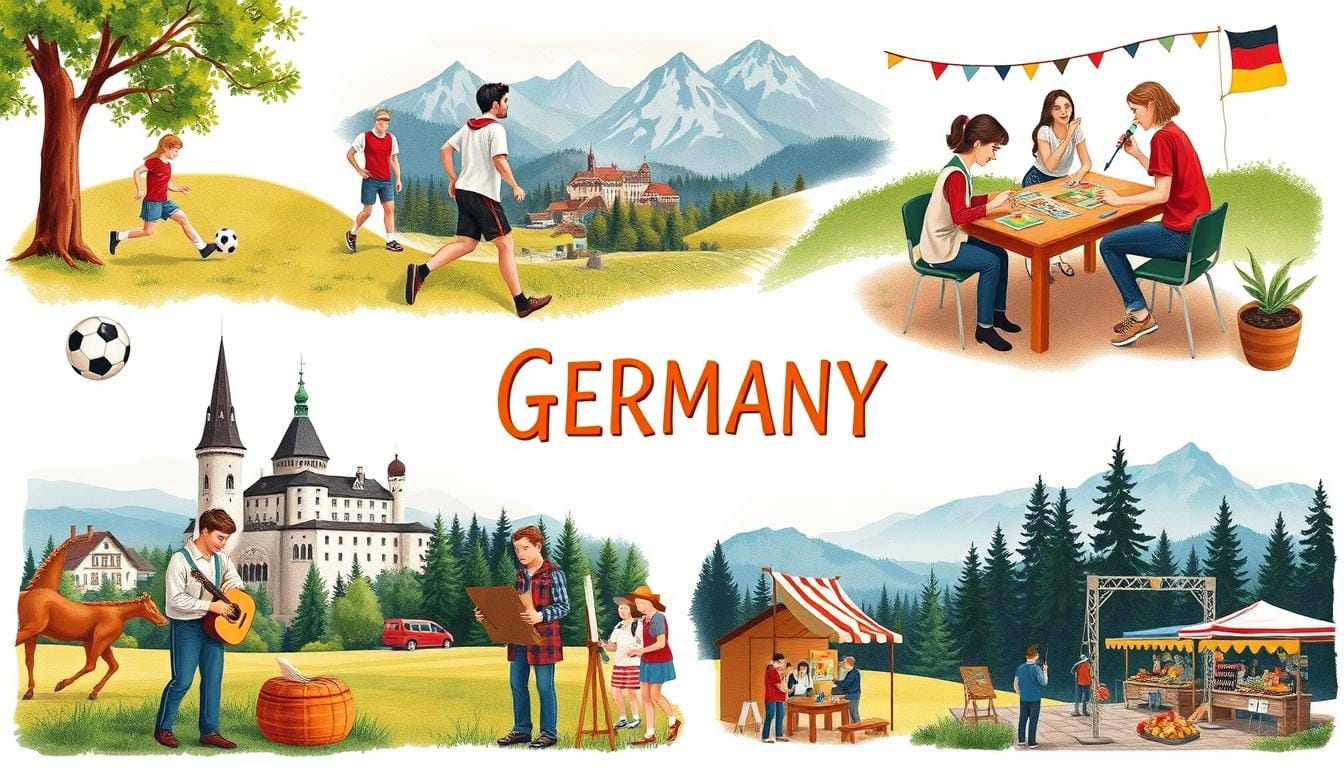
Germans enjoy sharing their hobbies, from sports to creative activities. Here are some phrases to help you talk about your interests.
Common Hobby Vocabulary
Here are some key phrases for discussing your hobbies:
- Ich interessiere mich für… (I’m interested in…)
- Mein Hobby ist… (My hobby is…)
- Ich spiele gerne… (I like to play…)
Popular German Hobbies
| Hobby | German Word | Example Phrase |
|---|---|---|
| Football | Fußball | Ich spiele gerne Fußball |
| Cycling | Radfahren | Ich fahre gerne Rad |
| Hiking | Wandern | Ich gehe gerne wandern |
| Photography | Fotografieren | Mein Hobby ist Fotografie |
Activity-Related Phrases
When talking about hobbies, Germans often use certain phrases:
- Start with “Ich” (I)
- Add the verb
- Include “gerne” (like to)
- Mention the activity
“Sharing your hobbies is a great way to connect with native German speakers and make your introductions more personal.”
Being true to yourself is key in German introductions. Share what you really enjoy. This way, you’ll have meaningful conversations that go beyond small talk.
German Numbers and Age-Related Phrases
Learning numbers is key when introducing yourself in German. Knowing how to say numbers helps you share your age and connect with others. At first, the German number system might seem hard. But with practice, you’ll get the hang of it.
When you introduce yourself in German, talking about your age is common. You say “Ich bin [number] Jahre alt” (I am [number] years old). German numbers are different from English, making them fun to learn.
“Numbers are the language of mathematics, but in German, they’re also the key to personal communication.”
German Number Pronunciation Guide
- 1-10 have unique words: eins, zwei, drei, vier, fünf, sechs, sieben, acht, neun, zehn
- 11-19 follow a pattern: elf, zwölf, dreizehn, vierzehn…
- Tens end with “-zig”: zwanzig (20), dreißig (30), vierzig (40)
Here are some examples of introducing your age in German:
| Age | German Phrase | English Translation |
|---|---|---|
| 25 | Ich bin fünfundzwanzig Jahre alt | I am 25 years old |
| 32 | Ich bin zweiunddreißig Jahre alt | I am 32 years old |
| 47 | Ich bin siebenundvierzig Jahre alt | I am 47 years old |
For a good German self-introduction, practice your number pronunciation. German numbers often join words with “und” (and). This might be tricky at first, but keep practicing.
When you practice German numbers, focus on clear and confident speaking. Remember, making mistakes is okay. Native speakers will appreciate your effort to speak their language.
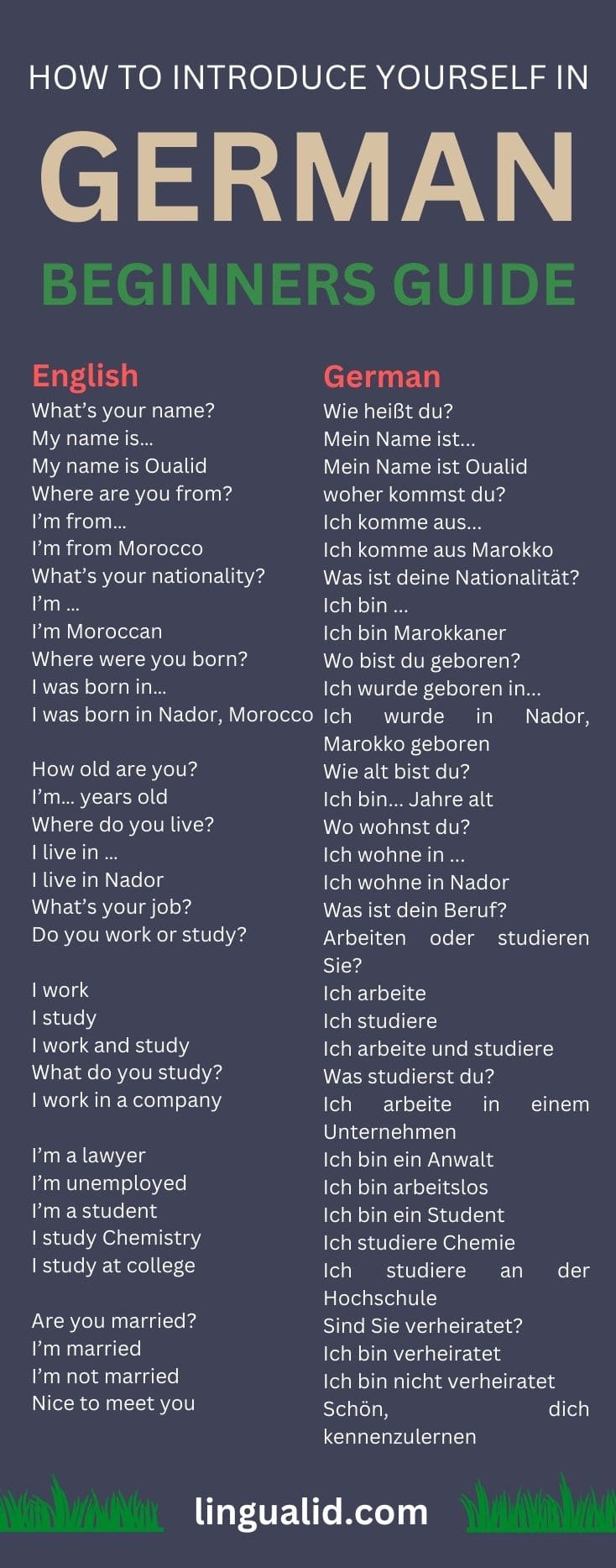
Cultural Tips for German Introductions
Learning proper German introductions is more than just phrases. Knowing cultural tips helps you make a great first impression in both social and professional settings.
Body Language Essentials
German communication is big on non-verbal signals. Here are some body language tips for a strong first impression:
- Maintain firm, direct eye contact during introductions
- Offer a strong, confident handshake
- Stand at an appropriate personal distance (approximately arm’s length)
- Avoid excessive physical touching
Social Customs to Remember
German social interactions have their own rules:
- Punctuality is key – being late is seen as rude
- Use formal address (Sie) until told to use informal (du)
- Speak clearly and directly
- Respect personal space and professional lines
“In Germany, first impressions are built on respect, clarity, and cultural understanding.” – German Etiquette Expert
Professional Introduction Etiquette
In professional settings, follow these important guidelines for German introductions:
- Use professional titles when addressing colleagues
- Exchange business cards with both hands
- Dress conservatively and professionally
- Prepare a concise, clear self-introduction
By grasping these cultural tips, you’ll confidently handle German social interactions and leave a positive mark.
Conclusion
Learning to introduce yourself in German is more than just memorizing phrases. It’s about understanding the cultural nuances that make communication meaningful. With 70% of language learners feeling more confident after mastering basic greetings, your journey into German social interactions becomes both exciting and strategic.
Making a good first impression in German requires attention to context. Whether you’re in a professional setting where workplaces prefer formal “Sie” language, or in a casual environment where interactions use informal greetings, adaptability is key. Regional variations like “Moin” in northern Germany and “Servus” in the south add rich layers to your linguistic toolkit.
Practice remains the cornerstone of language mastery. Studies show consistent practice can improve conversational fluency by 50% within months. By understanding the subtle differences between formal and informal communication—which can impact perceived politeness by up to 90%—you’ll navigate German social landscapes with increasing ease and confidence.
Your language learning journey is a continuous adventure. Embrace each interaction as an opportunity to refine your skills, remembering that communication is about connection, respect, and mutual understanding. With dedication and cultural awareness, you’ll transform simple introductions into bridges of meaningful dialogue.
FAQ
What’s the most important thing to remember when introducing yourself in German?
How do I say “My name is” in German?
What are some common German greetings?
How do I ask someone’s name in German?
What’s the proper way to shake hands in German-speaking countries?
How do I talk about my age in German?
What should I do if I don’t understand something during an introduction?
How do I introduce my profession in German?
Are there any cultural taboos I should avoid when introducing myself?
How can I practice my German introductions?
Oualid Cheddadi is the founder of Lingualid, a platform that inspires independent language learners worldwide, regardless of the language they are learning. The name “Lingualid” is derived from the Portuguese word for “language,” “língua,” and the last three letters of Oualid’s name, “Lid.”


